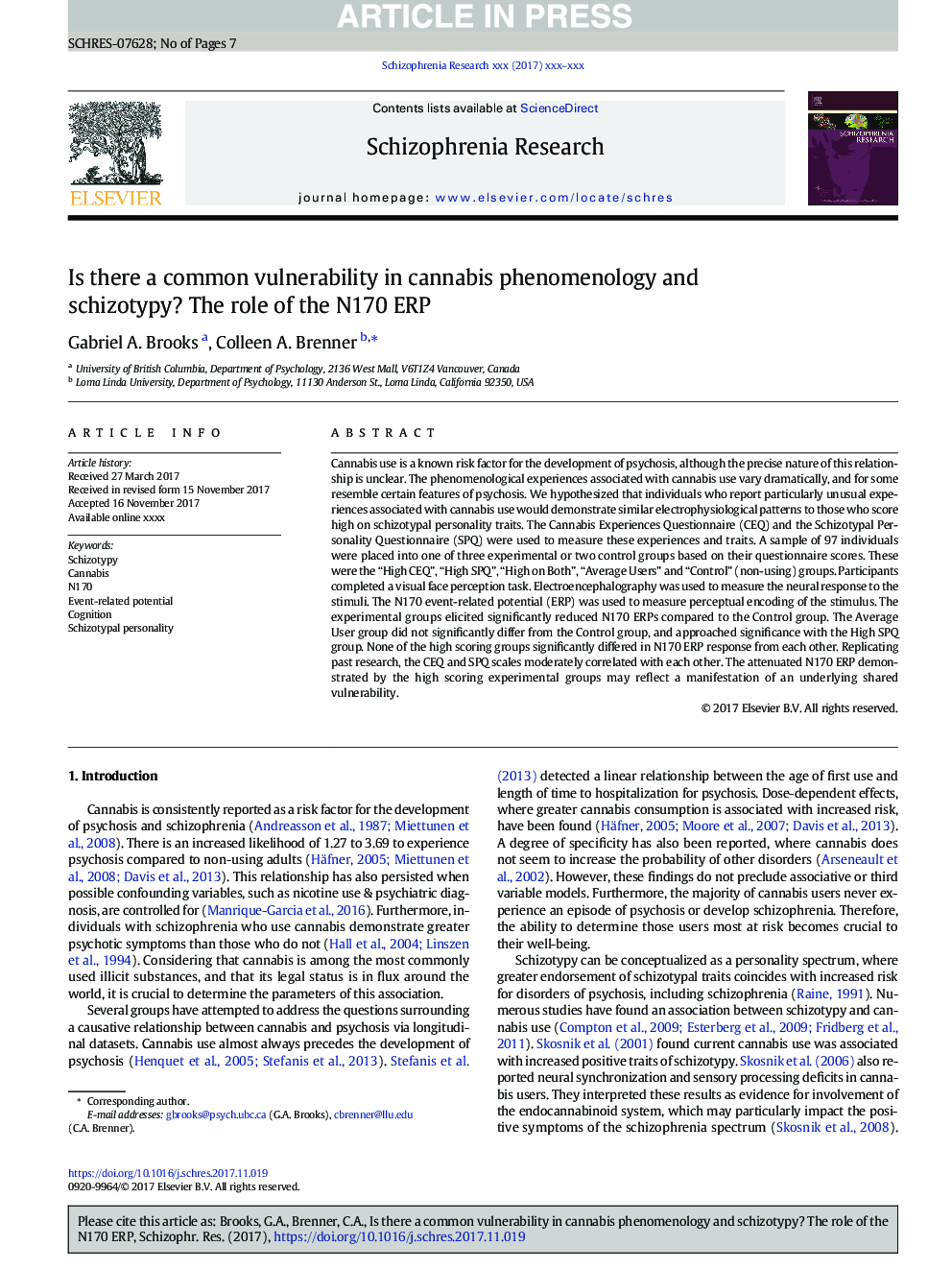| Article ID | Journal | Published Year | Pages | File Type |
|---|---|---|---|---|
| 6820924 | Schizophrenia Research | 2018 | 7 Pages |
Abstract
Cannabis use is a known risk factor for the development of psychosis, although the precise nature of this relationship is unclear. The phenomenological experiences associated with cannabis use vary dramatically, and for some resemble certain features of psychosis. We hypothesized that individuals who report particularly unusual experiences associated with cannabis use would demonstrate similar electrophysiological patterns to those who score high on schizotypal personality traits. The Cannabis Experiences Questionnaire (CEQ) and the Schizotypal Personality Questionnaire (SPQ) were used to measure these experiences and traits. A sample of 97 individuals were placed into one of three experimental or two control groups based on their questionnaire scores. These were the “High CEQ”, “High SPQ”, “High on Both”, “Average Users” and “Control” (non-using) groups. Participants completed a visual face perception task. Electroencephalography was used to measure the neural response to the stimuli. The N170 event-related potential (ERP) was used to measure perceptual encoding of the stimulus. The experimental groups elicited significantly reduced N170 ERPs compared to the Control group. The Average User group did not significantly differ from the Control group, and approached significance with the High SPQ group. None of the high scoring groups significantly differed in N170 ERP response from each other. Replicating past research, the CEQ and SPQ scales moderately correlated with each other. The attenuated N170 ERP demonstrated by the high scoring experimental groups may reflect a manifestation of an underlying shared vulnerability.
Related Topics
Life Sciences
Neuroscience
Behavioral Neuroscience
Authors
Gabriel A. Brooks, Colleen A. Brenner,
